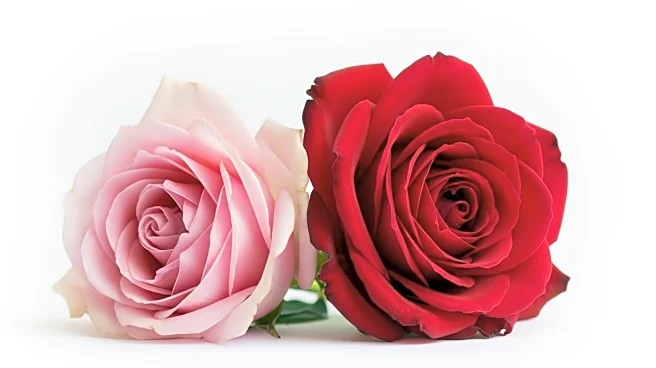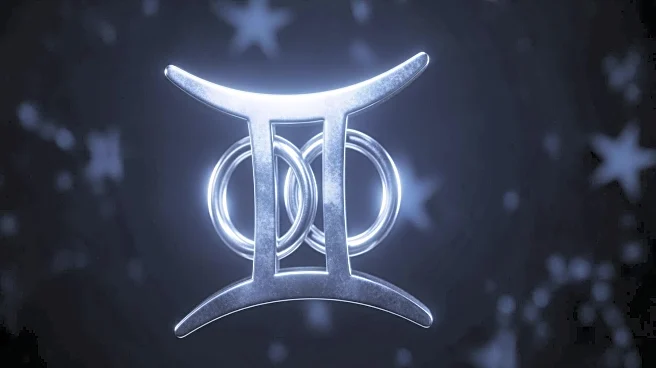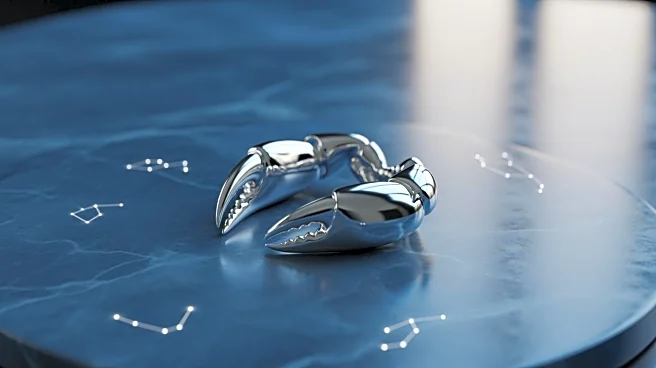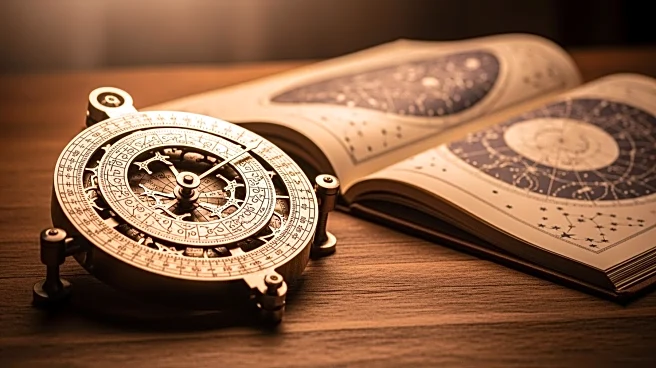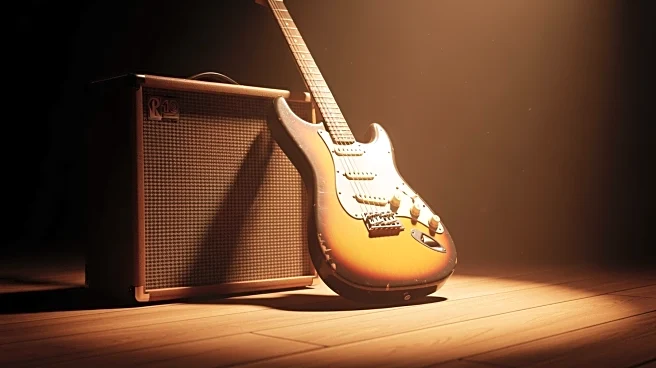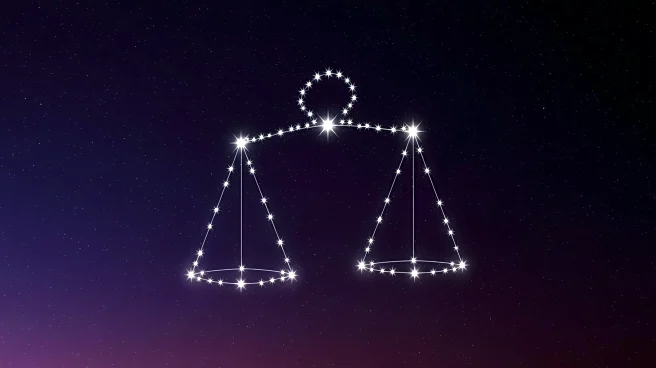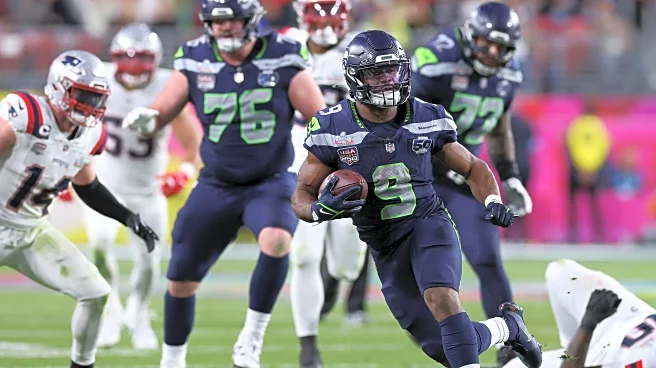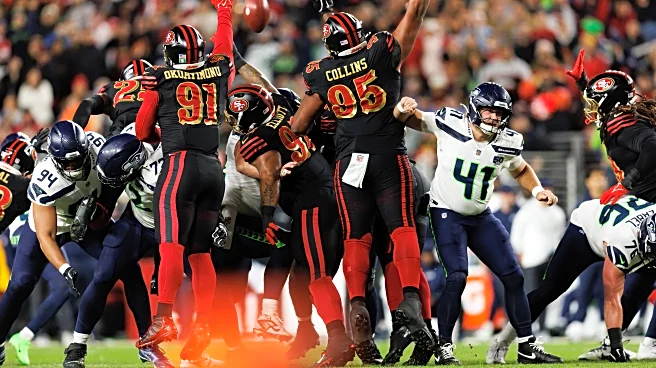What's Happening?
The Roses, a new film adaptation of Warren Adler's novel The War of the Roses, stars Olivia Colman and Benedict Cumberbatch. Unlike the 1989 film adaptation, which focused on a divorce filled with hatred, The Roses portrays a marriage that remains loving despite growing combative. Directed by Jay Roach and written by Tony McNamara, the film explores the dynamics of a couple, Ivy and Theo, who relocate to California and face challenges in their careers and marriage. The film's tone is described as tentative, with a mix of comedy and drama, but lacking the biting satire of its predecessor. Supporting cast includes Andy Samberg, Kate McKinnon, Zoë Chao, Jamie Demetriou, and Allison Janney, though their roles are not fully utilized.
Why It's Important?
The Roses represents a shift in storytelling from the original narrative of The War of the Roses, focusing on the complexities of marriage rather than the bitterness of divorce. This adaptation reflects broader trends in film where existing intellectual properties are reimagined to appeal to contemporary audiences. The film's approach to marriage and relationships may resonate with viewers who appreciate a more nuanced portrayal of love and conflict. However, the lack of the original's satirical edge may disappoint fans of the 1989 film. The involvement of high-profile actors and filmmakers highlights the industry's interest in leveraging star power to attract audiences.
What's Next?
The film's reception may influence future adaptations of classic stories, encouraging filmmakers to balance original themes with modern sensibilities. Audience reactions and box office performance will likely determine the success of this approach. The Roses may prompt discussions on the portrayal of marriage in media and the importance of maintaining the essence of original stories in adaptations. The film's mixed reviews could lead to further analysis of the collaboration between directors and writers with differing comedic styles.
Beyond the Headlines
The Roses raises questions about the ethics of adapting existing intellectual properties without preserving their core themes. The film's departure from the original's biting satire may reflect broader cultural shifts towards more positive portrayals of relationships. This adaptation could influence future storytelling trends, encouraging filmmakers to explore complex emotional narratives while maintaining audience engagement. The film's exploration of marriage dynamics may contribute to ongoing conversations about the portrayal of love and conflict in media.
